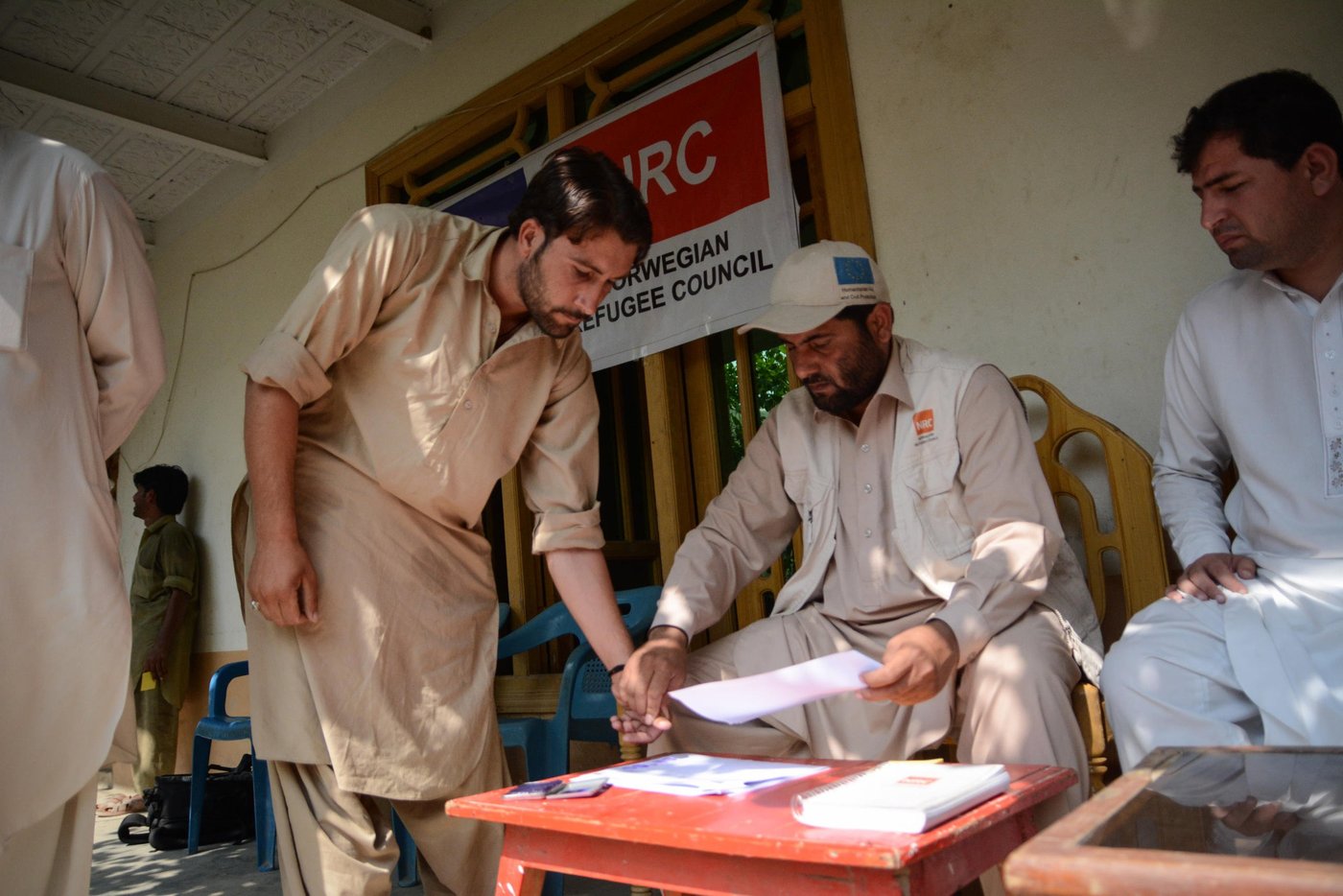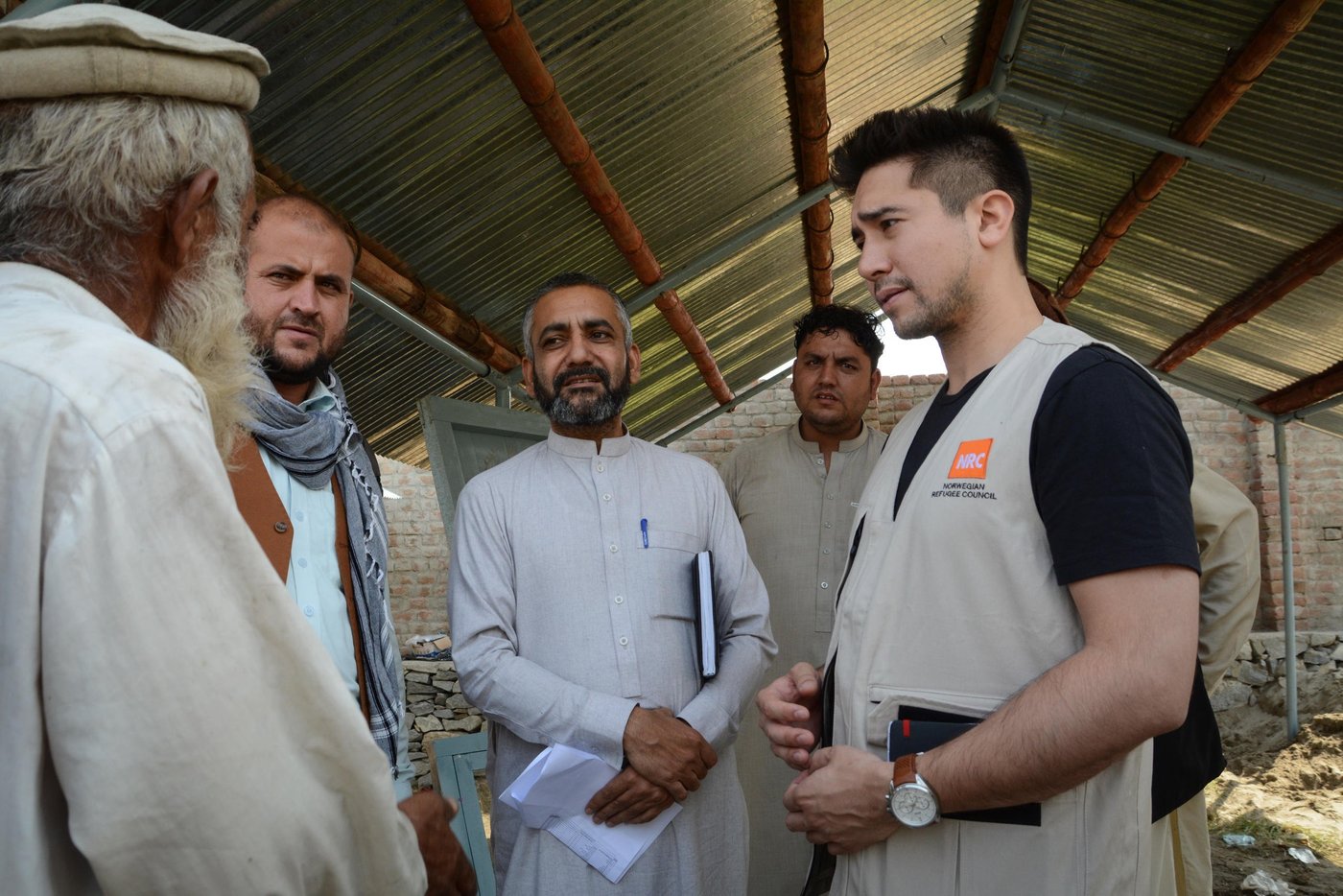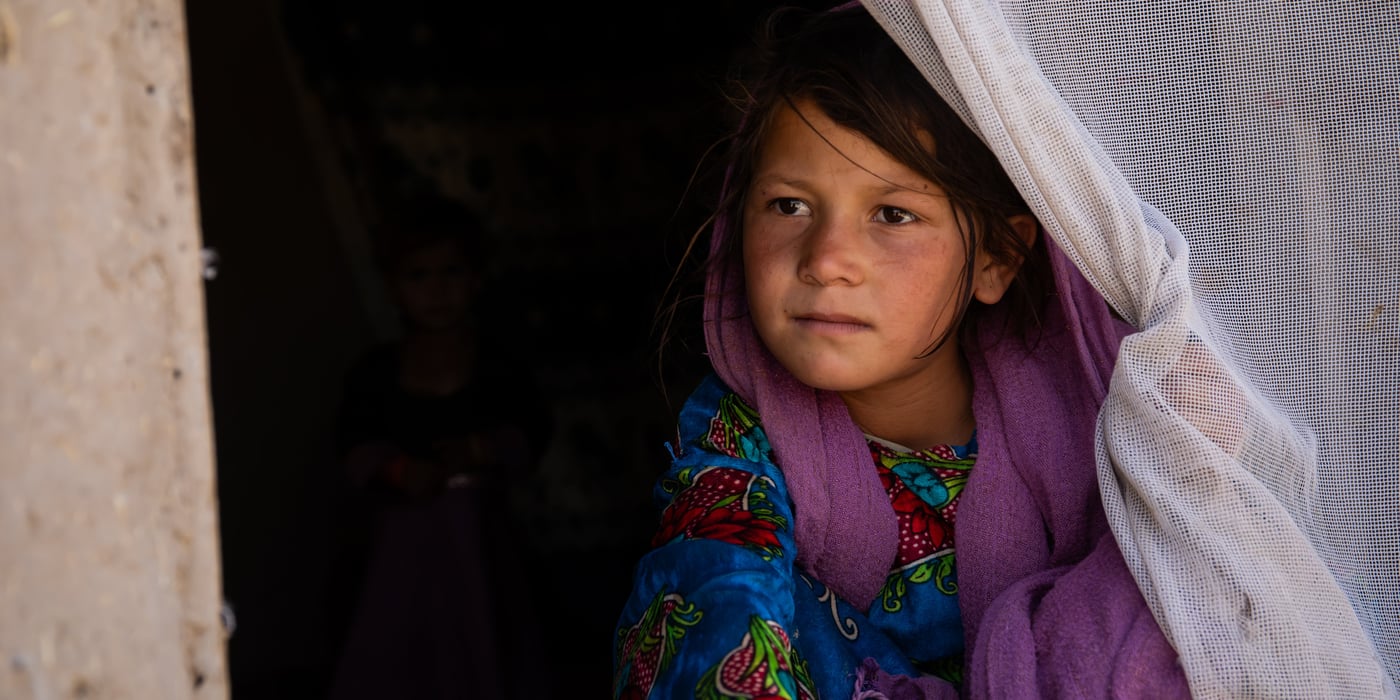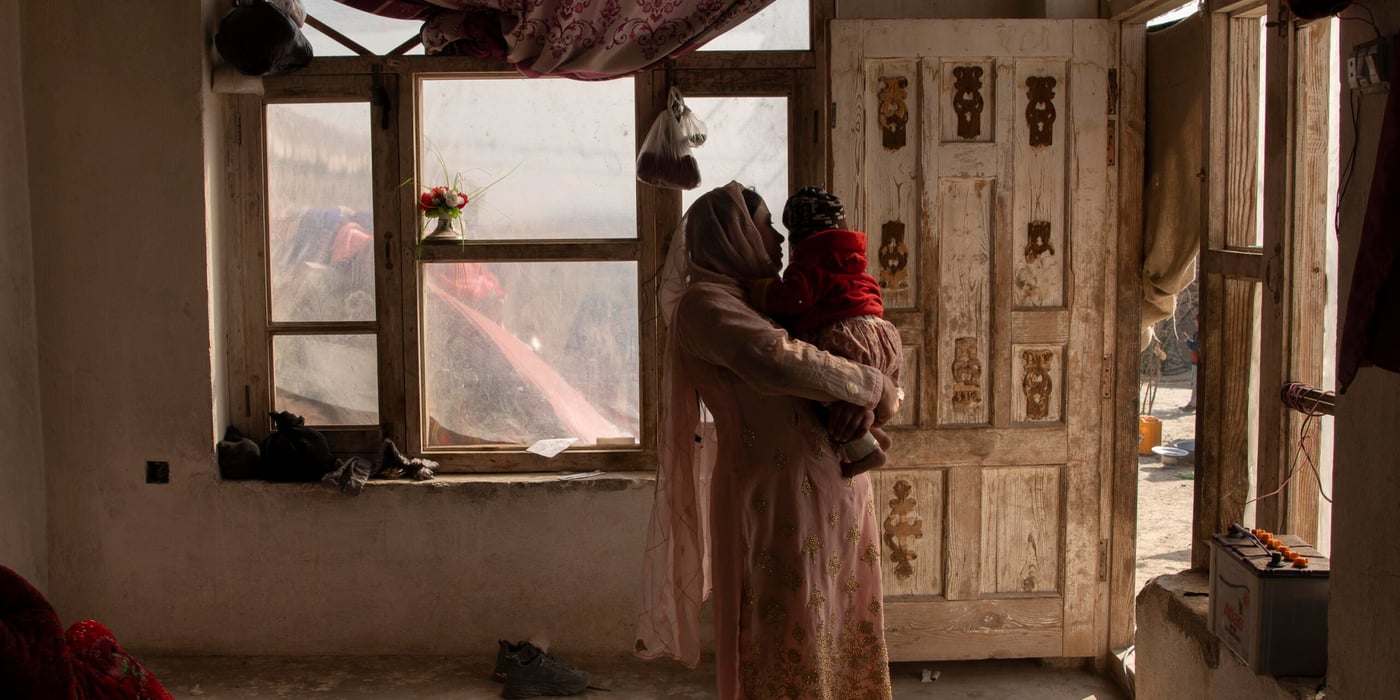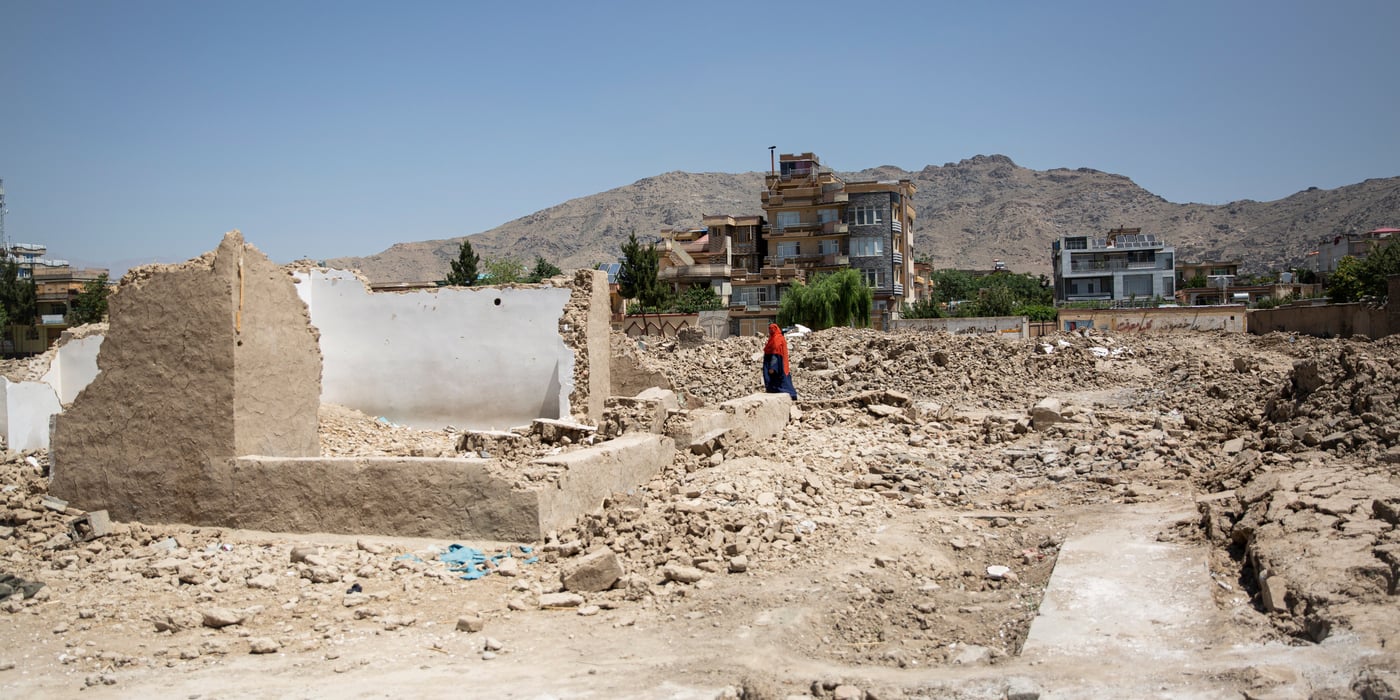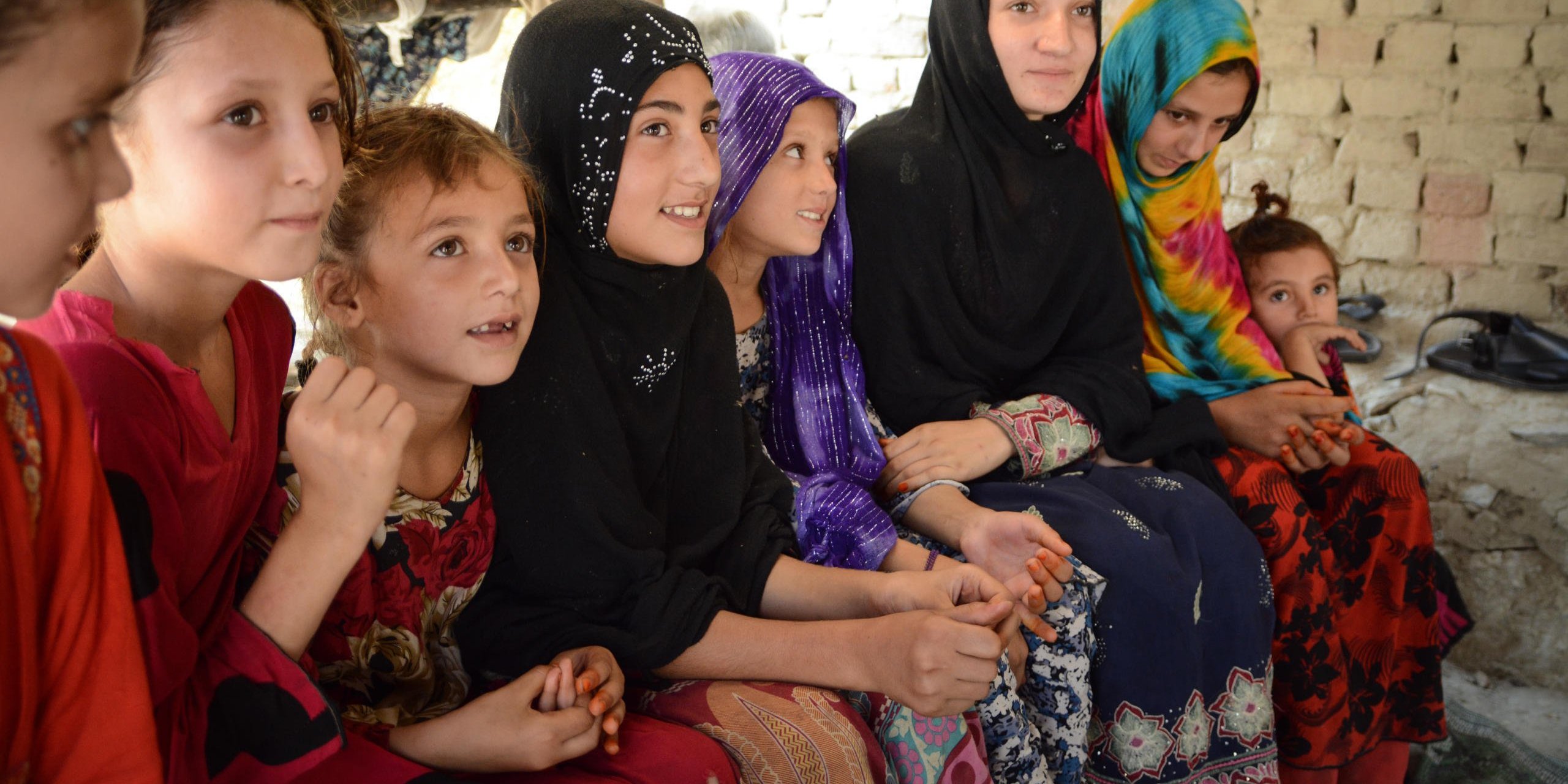
More than 150,000 Afghan refugees have returned from Pakistan to Afghanistan in the last four months, creating an emergency of a scale humanitarian actors were not prepared to tackle.
“Refugees that were formally registered in Pakistan have received assistance, but it has been challenging to get the necessary funding to meet the urgent needs of the large number of refugees that were unable to be registered there”, explains Acting Head of Programs for the Norwegian Refugee Council, Will Carter.
With the quick and flexible support from the Swedish International Development Cooperation Agency (Sida), the Norwegian Refugee Council is now distributing tents to 971 families. Support from UN OCHA will allow another 842 families to receive transitional shelters.
“It is a race against time to provide the families with a proper place to stay before the wet winter season, when water-borne diseases will spread”, says Carter.
It is a race against time to provide the families with a proper place to stay before the wet winter season, when water-borne diseases will spreadActing Head of Programs for the Norwegian Refugee Council, Will Carter
Had no choice
“We had a beautiful house. It was safe and we had everything there”, tells Zaria about her life back in Pakistan.
Like most of her siblings, she was born in Pakistan and had never set foot on Afghan soil before October this year. The family fled from Afghanistan to Pakistan about 30 years ago, during the Russian invasion.
“Life in Pakistan was good up until recently, but now it was not safe for us to stay there any longer. We had no other choice, but to return”, explains Zaria’s older brother, Omar (21).
In October, 1700 Afghans were crossing back into Afghanistan from Pakistan every day. The International Organization for Migration (IOM) expects a further 150,000 people to arrive by the end of the year. Most of them are heading towards Nangarhar province.
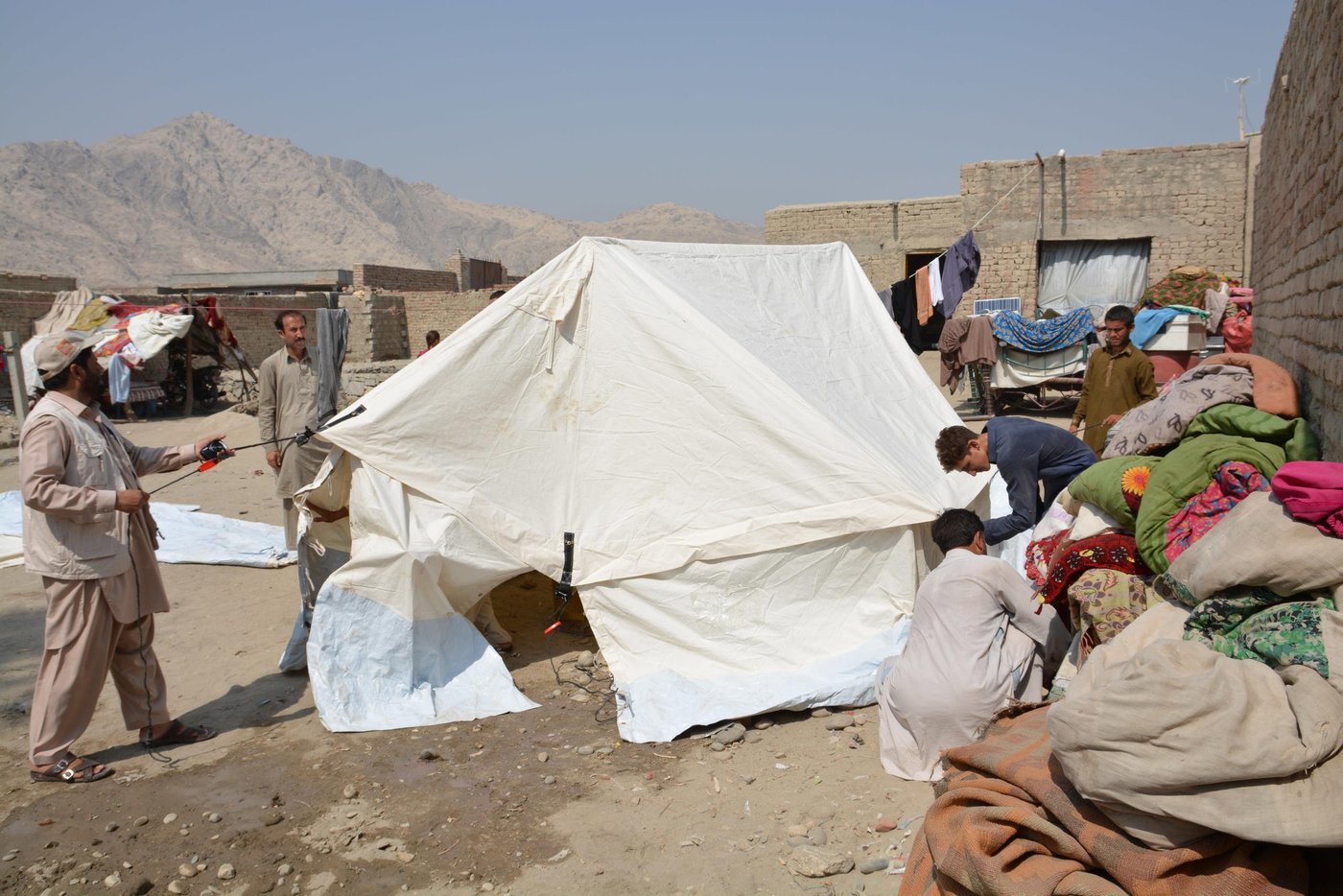
Pitching tents
Zaria, Omar and about thirty other family members have settled down with an older brother, who has been able to rent a piece of land at the outskirts of Jalalabad. Due to lack of space, most of them have had to sleep in the open. Now they are pitching three new emergency tents in their brother´s yard.
“We have been living under very difficult conditions. The children have become sick, due to the bad living conditions and lack of shelter”, says Omar.
The Norwegian Refugee Council’s team on the ground shares his concerns:
“It is devastating to witness how many returnee families are destitute and in appalling conditions. We see small children who are very ill. With the support from the Swedish International Development Cooperation Agency, we were amongst the first to respond and we have been able to reach some of the most vulnerable families, but many people still do not receive necessary assistance,” says Carter.
“Families are grateful that their children no longer sleep on the ground in the open, but they’re still very anxious about what the future holds,” he adds.
